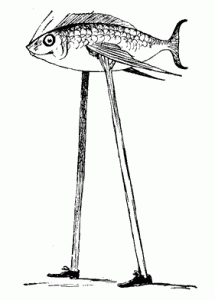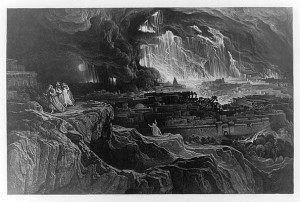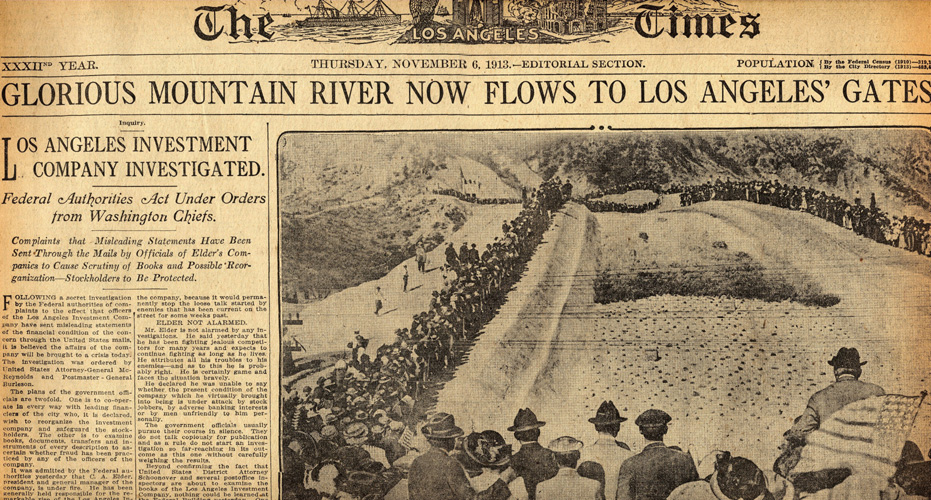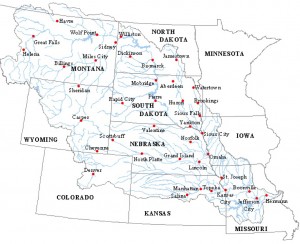The week that was, 5/16-22/2010
Posted on | May 23, 2010 | No Comments

On May 18, 2010, Judge Oliver Wanger of the Easter District Court in Fresno, CA, intimated that water reserved under the Endangered Species Act in the San Fancisco Bay Delta system to aid fish migrating through its tributaries may be diverted to Central Valley farms and Southern California cities because of the impact of fish protections on water users. A subsequent ruling is expected this week.
It is in the public interest that relief be granted to Plaintiffs, who represent a substantial population of water users in California, to enhance the water supply to reduce the adverse harms of destruction of permanent crops; fallowed lands; increased groundwater consumption; land subsidence; reduction of air quality; destruction of family and entity farming business; and social disruption and dislocation, such as increased property crimes and intra-family crimes of violence; adverse effects on schools and increased unemployment leading to hunger and homelessness. This must be done without jeopardizing the species and their critical habitat. — Judge Oliver Wanger, “Findings of facts and conclusions of law,” The Consolidated Salmonid Cases, Eastern District Court, May 18, 2010
Salmon are now being blamed for domestic violence? Fish cause property damage and are the cause of California’s failing schools? Really? Where is the evidence to support these findings? Have we lost all perspective? — “Salmon cause crime and hurt schools?” On the Waterfront, May 19, 2010 via Aquafornia
 “Drought is an imprecise term and arguably most of the state is probably not in a drought at the moment.” — Wendy Martin, drought coordinator, California Department of Water Resources, “Drought label stays, and some blame politics,” San Francisco Chronicle, May 16, 2010
“Drought is an imprecise term and arguably most of the state is probably not in a drought at the moment.” — Wendy Martin, drought coordinator, California Department of Water Resources, “Drought label stays, and some blame politics,” San Francisco Chronicle, May 16, 2010
… if a breakdown is to maintain its charm, it has to be quick and zesty. — “Let us now praise breakdowns,” Boston Globe, May 16, 2010

An internal investigation in 2008 described a "culture of substance abuse and promiscuity" by Minerals Management Service workers. Last week, Interior Secretary Ken Salazar testified about the Obama administration intention to break up the agency. Click on the 1832 print of the destruction of Sodom and Gomorrah for an AP report on the Obama plan.
The Minerals Management Service, the government agency that oversees offshore drilling, in recent years moved away from requiring specific safety measures in offshore drilling and instead set broad performance goals that it was up to the industry to meet. — “Disaster plans lacking at deep rigs,” Wall Street Journal, May 18, 2010
Permits to sell hot dogs are harder to get than permits to drill offshore in deep waters of the Gulf of Mexico. — Earthjustice attorney David Guest, “Suit filed to end reckless approach to offshore drilling,” Unearthed blog, May 18, 2010
Pelican eggs were glazed with rust-colored gunk in the bird colony, with thick globs floating on top of the water. — “As spill grows, oil soaks delicate marshes, birds,” AP / Denver Post, May 23, 2010
RESOLVED, that the Cortland County Legislature hereby requests that the state ban hydrofracking operations pending further independent scientific assessments … — “Official to call for delay in fracking,” The Daily Star, Oneonta, NY, May 21, 2010
“There’s a lot of lessons here for how science can go awry, how bureaucracies can use science to hide the truth.” — engineering professor Marc Edwards, “Virginia Tech professor uncovered the truth about lead in DC tap water,” Washington Post, May 23, 2010*
“… we felt it would be inappropriate for her to be reviewing her own work.” — William Kearney, spokesman for the National Academy of Sciences, “Scientist forced to resign from Delta panel following controversial research,” Contra Costa Times, May 21, 2010
“Realistically, there’s not enough water to do everything for everybody, and there’s always that dilemma.” — David Pope, executive director of the Missouri River Association of States and Tribes, “$25M Missouri River study begins comment phase,” Associated Press via Denver Post, May 23, 2010*
“I know from experience, when I do work at people’s houses and I’m required to shut off water, sometimes when I turn it back on, it’ll blow up a pipe. Pipes get to a fragile state, and under some circumstances, they’ll go.” — Los Angeles resident Bob Kuebler, “Department of Water & Power alters conservation schedule to ease pressure on system,” LA Daily News, May 18, 2010
“When you fill a bucket, you think quantity – how much? How much am I using?” — Designer Patricia Urquiola, “The bathroom as one giant mirror of your way of life,” Los Angeles Times, May 18, 2010
“It wouldn’t surprise me at all to hear six months from now that somebody has found a cottonmouth in their basement, nowhere near a large body of water.” — Andy Tweed, a conservation officer with the Tennessee Wildlife Resources Agency, “Floods send snakes to higher ground, oddest of places,” Memphis Commercial Appeal, May 23, 2010*
“We prefer to do restorations, but on occasion we can basically create these wetlands out of nowhere.” — Greg Kernohan of Ducks Unlimited, “Ducks Unlimited looks to recharge, restore water fowl habitats,” Greeley Tribune, May 21, 2010
“… whoever our next governor is will be working with two other brand new governors, because all three states have governors leaving office with new ones coming in.” –– April Ingle, executive director of the Georgia River Network on the dispute with Alabama and Florida over the Apalachicola-Chattahoochee-Flint river basin, “New governor will inherit Georgia’s water crisis,” Augusta Chronicle, May 18, 2010

The UC Water Resources Center Archives are threatened with break-up by budget cutbacks. Click on the image to be taken to the Archives website.
“The lawyers from both sides were here.” — Linda Vida, director of the Water Resources Center Archives on the Supreme Court Case that required Los Angeles to restore Mono Lake, “Archives at risk,” Contra Costa Times, May 17, 2010
At the height of the building boom in 2005, the Las Vegas Valley Water District added more than 24,000 new customers. In 2009, that number fell to 280 requests for new service. — “Lull shapes new budget for agency,” Las Vegas Review-Journal, May 18, 2010
“What kind of kicked off the problem is that the lake appeared to be getting greener over the years.” — Kent Johnson, monitoring manager, twin cities Metropolitan Council, “Preserving the St Croix,” St Paul-Minneapolis StarTribune, May 17, 2010
The district board voted to back a plan by Fort Collins entrepreneur Aaron Million to build a 560-mile pipeline that could bring water into the Arkansas River basin. — “Lower Ark likes Flaming Gorge Plan,” Pueblo Chieftain, May 22, 2010
“We’re kind of sticking out on a ledge …” — Dave Montali of the West Virginia Department of Environmental Protection, “DEP to propose new water standard on dissolved solids,” Charleston Gazette-Mail, May 19, 2010
For full round-ups of California water stories, go to Aquafornia or UC Berkeley’s On Water.
*Some stories in this collection appeared in The week that is, ie: May 23.
Comments
Leave a Reply




